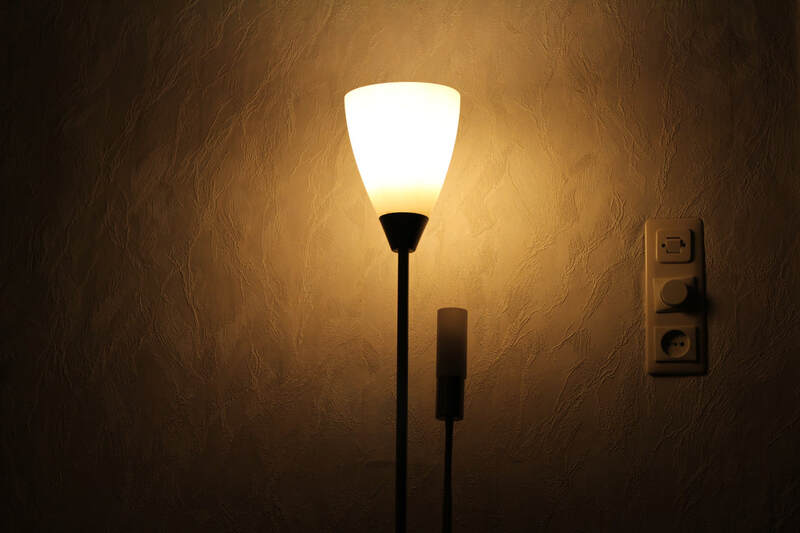The Potential Effects of Light Exposure at Night
In the growing digital age, it’s hard to go about our day normally without being exposed to the light constantly emitted from the screens all around us. Exposure to light, including the light that comes from our everyday phones or computers, greatly affects the body’s circadian rhythm, or “biological clock.” Essentially, the circadian rhythm’s job is to regulate how we act and behave depending on the time of day. For example, it tells us when we want to go to sleep in response to the darkness of night, and also helps us wake up in response to the morning light.
Maintaining a healthy circadian rhythm is important, as disruptions to the circadian rhythm by exposure to light at abnormal times have been shown to impair bodily function, potentially affecting the immune system, which defends our body from deadly pathogens. Dim light at night, or dLAN, involves excessive exposure to dim light at irregular times, and can potentially contribute to disrupted circadian rhythms. Especially in this day and age, these disruptions can be a common occurrence: most notably, scrolling through our phones for long periods of time right before we go to sleep. Older individuals are of particular concern regarding disrupted circadian rhythms, considering their increased risk of disease due to their typically weaker immune systems.
Maintaining a healthy circadian rhythm is important, as disruptions to the circadian rhythm by exposure to light at abnormal times have been shown to impair bodily function, potentially affecting the immune system, which defends our body from deadly pathogens. Dim light at night, or dLAN, involves excessive exposure to dim light at irregular times, and can potentially contribute to disrupted circadian rhythms. Especially in this day and age, these disruptions can be a common occurrence: most notably, scrolling through our phones for long periods of time right before we go to sleep. Older individuals are of particular concern regarding disrupted circadian rhythms, considering their increased risk of disease due to their typically weaker immune systems.
Image Source: "Circadian Rhythms" by National Human Genome Research Institute is licensed under CC BY 2.0
In a recent study published on October 21, 2022, researchers in West Virginia at the Rockefeller Neuroscience Institute explored how disrupted circadian rhythms by chronic exposure to dLAN affected the immune system function and survival of aged organisms. Using aged mice, the researchers created two separate groups: one that was exposed to lighting conditions that resembled a regular day with no dLAN exposure, and another that was chronically exposed to dLAN. The mice were left in these conditions for 24 weeks.
At the end of the experiment, different features of the mice were measured, such as body mass, overall survival, and mass of the adrenal glands, which help the body respond to stress. Interestingly, the results showed varying effects depending on sex. Notably, only females exposed to chronic dLAN were determined to have reduced life spans as a result of accelerated aging and weakened immune systems. On the other hand, males exposed to chronic dLAN experienced erratic weight changes throughout the allotted time period. Additionally, males exposed to dLAN had proportionally larger adrenal gland masses compared to the males housed in normal conditions, which potentially indicates increased levels of stress. Essentially, the exposure to chronic dLAN was shown to alter bodily functions and features, but in different ways in males and females.
While further research should be conducted to analyze the discrepancies between sexes and whether the same effects would also be observed in younger mice, the West Virginia researchers gave us further insight into the potential consequences of chronic exposure to dim light, its effects on different sexes, and how age plays a role. Exposure to chronic dLAN can disrupt circadian rhythms, which may lead to dysregulated body functions, notably in the immune system. Most of us are particularly susceptible to dLAN exposure with light-emitting electronics nearly everywhere, and this is especially important to keep in mind for older individuals. Despite our busy lives, it’s never a bad idea to take a break from our screens once in a while, and your body would likely thank you for it.
At the end of the experiment, different features of the mice were measured, such as body mass, overall survival, and mass of the adrenal glands, which help the body respond to stress. Interestingly, the results showed varying effects depending on sex. Notably, only females exposed to chronic dLAN were determined to have reduced life spans as a result of accelerated aging and weakened immune systems. On the other hand, males exposed to chronic dLAN experienced erratic weight changes throughout the allotted time period. Additionally, males exposed to dLAN had proportionally larger adrenal gland masses compared to the males housed in normal conditions, which potentially indicates increased levels of stress. Essentially, the exposure to chronic dLAN was shown to alter bodily functions and features, but in different ways in males and females.
While further research should be conducted to analyze the discrepancies between sexes and whether the same effects would also be observed in younger mice, the West Virginia researchers gave us further insight into the potential consequences of chronic exposure to dim light, its effects on different sexes, and how age plays a role. Exposure to chronic dLAN can disrupt circadian rhythms, which may lead to dysregulated body functions, notably in the immune system. Most of us are particularly susceptible to dLAN exposure with light-emitting electronics nearly everywhere, and this is especially important to keep in mind for older individuals. Despite our busy lives, it’s never a bad idea to take a break from our screens once in a while, and your body would likely thank you for it.
Featured Image Source: StockyPics
RELATED ARTICLES
|
Vertical Divider
|
Vertical Divider
|
Vertical Divider
|






